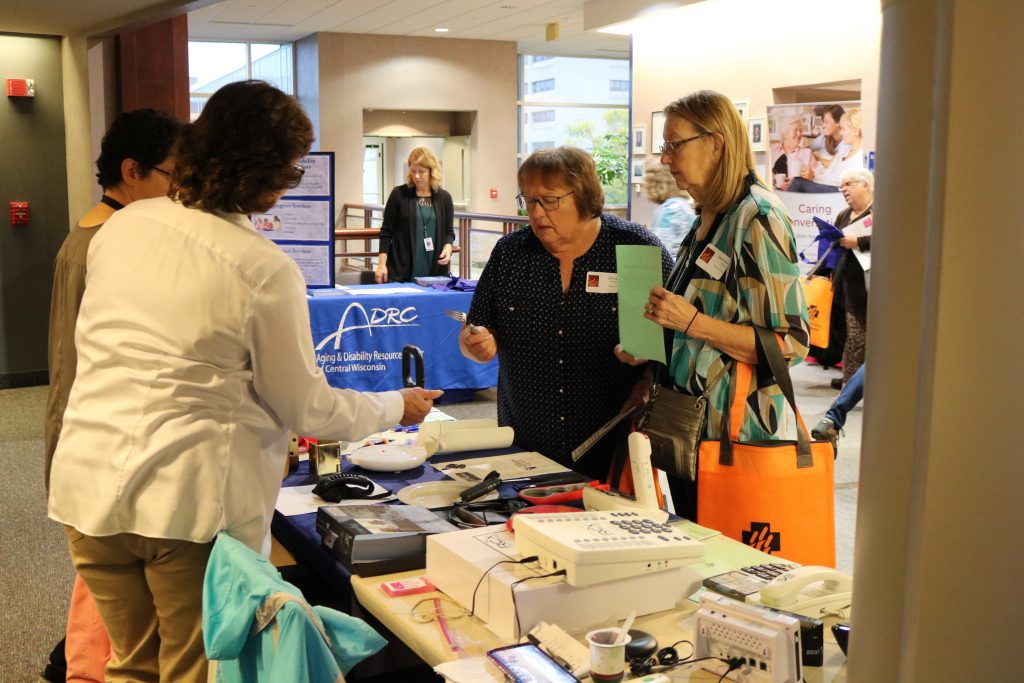A week after The Gathering, we continue our discussion on Accessibility and Creative Solutions That Work. Today, sharing information about assistive, or adaptive, technology — how it is helping those with disabling conditions to more safely and independently perform activities of daily living. The new world of technology is an exciting place. Especially, when it interacts with the medical field!

Dr. Christopher Luzzio, associate professor in the Neurology department at the University of Wisconsin-Madison, is at the intersect of both worlds. As both a neurologist and mechanical engineer, he specializes in multiple sclerosis (MS) research (a disease in which 50% of those diagnosed will likely need the assistance of a cane of wheelchair, and many others experience weakness, tremors, blurred vision, etc.) and assistive medical technology. He explained at a WWHF conference earlier this year that the goal of his work and developing technology for those with certain disabilities is finding the balance between acceptance, integration, visibility, and disability: “These individuals are not to be ignored, but we also don’t want them to be singled out.”
Dr. Luzzio teaches courses for senior mechanical engineering design and graduate students with a focus on using new technology to create devices for medical and rehabilitation purposes. Projects include arm assists and wheelchairs that are modified for more comfortable use, and even specialized designs like controllers that allow individuals with muscular dystrophy to play instruments or tremor sensors for those with Parkinson’s disease.
“One of my most important projects is encouraging and stimulating these students,” says Dr. Luzzio.
More about his research can be found HERE, or you can visit the National MS Society as well for information on increasing accessibility.

Other groups, like Midstate Independent Living Choices, Inc. (MILC), whose employees served as panelists at the recent Gathering event, also feel strongly about making assistive technology available. One of the core services of MILC is independent living, through which they offer assessments to determine the role that assistive technology could play in achieving an individual’s independent living goals. They additionally can assist with funding sources to help pay for any needed technology.
Visit their website for a list of resources!